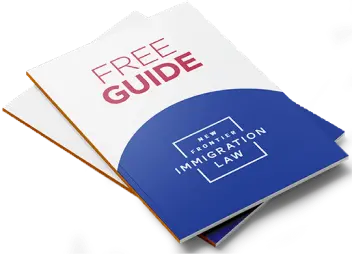When you file an N-470, it does not mean you can simply leave for employment abroad without worrying about reentering the U.S. Officials can consider that you are abandoning your residency if you spend an uninterrupted period of one year or more outside the U.S. Before you leave, you can avoid this issue by filing for a reentry permit using Form I-131.
If you have been abroad for an extended period and try to reenter the U.S., a customs official can deem that period as temporary. However, this is only if you have maintained a constant and uninterrupted intention to return to the U.S. during the totality of your stay abroad. The customs official will assess the strength of your ties in the U.S. versus your associations abroad to see if the ties are strong enough to conclude you always planned to return to the U.S.
More Tips to Avoid Problems With Reentry
To show immigration officers you intend to maintain your permanent residence, you, as a lawful U.S. permanent resident, can take several steps to minimize issues upon reentering the U.S.:
- Obtain a U.S. driver’s license and ensure the address matches the one USCIS has on file for you.
- Acquire a credit card from a U.S. institution and use it periodically so that your statements will show activity.
- Obtain, maintain, and use U.S. savings and checking bank accounts.
- Maintain a U.S. address and have the U.S. Postal Service deliver all mail to this address, including USCIS documents.
- Communicate regularly with family and friends in the U.S. by email, letters, or phone, and keep all correspondence as proof.
- Be able to prove your family ties to the U.S., such as having a spouse, child, parent, or other close relatives living in the country.
Only the Primary Applicant (Person Working Abroad) in a Household Must File Form N-470
If you are married to a U.S. citizen working for certain employment purposes abroad, you do not have to meet residency and physical presence requirements for naturalization. Therefore, you do not have to fill out Form N-470. According to the form’s instructions, an N-470 applicant can extend the preserving residency benefit to their spouse and children who are members of the same household and have lived with the primary applicant while outside the U.S.
Taxes and Failure to File or Identify as a Resident
If you are a permanent resident, you must file U.S. tax returns every year, even if you are abroad and not working for a U.S.-based company. Failure to file returns can indicate abandonment, per the Internal Revenue Service (IRS). Furthermore, permanent residents typically must file tax returns showing global earnings, not just U.S. income.
It is also essential that permanent residents identify themselves as U.S. residents on tax returns and not as non-residents. If you file a U.S. tax return identifying as a non-resident, your residency status may be deemed abandoned based on this “voluntary admission” of non-residency, according to the IRS. However, this does not exclude the possibility of claiming the “non-resident” deduction for employment abroad, a schedule that must be submitted with a resident tax return.




